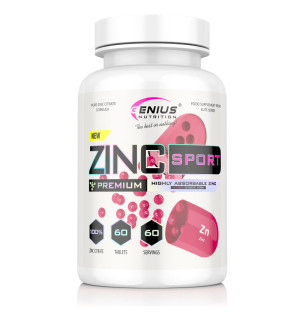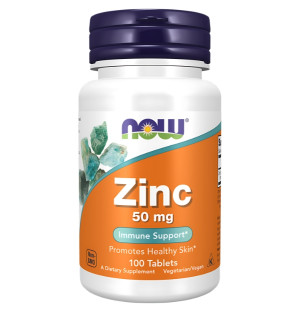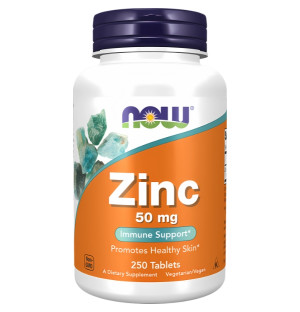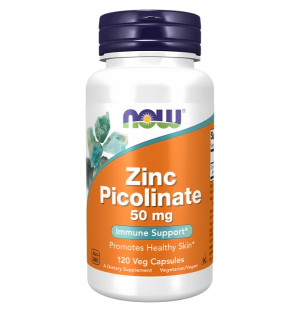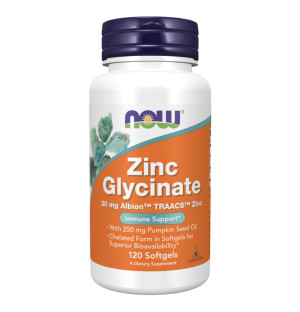Zinc
Zinc - support for immunity, skin and metabolic health
Zinc is one of the most important minerals and plays a key role in many biological processes in the body. It is essential for the proper functioning of the immune system, supports the health of the skin, hair and nails, is involved in wound healing and supports enzymatic, hormonal and metabolic functions. Zinc is a micronutrient that the body cannot store, so it must be supplied regularly in the diet or in the form of supplements.
Zinc is particularly valued for its immune system-boosting effects and is commonly used in dietary supplements, especially during times of increased risk of infection, such as the autumn and winter seasons. In addition, zinc plays an important role in hormone production, nutrient metabolism and in protecting cells from oxidative stress.
Key benefits and functions of zinc
✅ Strengthening the immune system
-
- Zinc is one of the most important minerals for the proper functioning of the immune system. It helps to activate T-lymphocytes - white blood cells that play a key role in fighting infection and disease. Regular consumption of zinc can reduce the risk of viral infections, such as colds, and shorten their duration. Zinc also supports the production of antibodies, which protect the body from pathogens, and regulates the inflammatory response, which is key in the fight against infections and inflammation.
✅ Skin health and wound healing
-
- Zinc plays a key role in maintaining skin health. It supports the regeneration of skin cells and helps in the wound healing process. It is also essential for collagen production, which promotes skin elasticity and prevents premature ageing. Zinc can also help treat acne and other skin problems, as it regulates sebum production and has an anti-inflammatory effect.
✅ Support for hair and nail health
-
- Zinc deficiency can lead to weakened hair and nails, hair breakage and hair loss. Zinc is essential for proper hair and nail growth and supports the healthy structure of these tissues. Regular supplementation with zinc can improve the condition of hair, prevent hair loss and strengthen nails.
✅ Support for reproductive and endocrine health
-
- Zinc plays a key role in the production and regulation of sex hormones such as testosterone. It is essential for men's health as it supports sperm production and improves sperm quality. Zinc also affects women's health by regulating hormone levels and supporting reproductive health. Zinc supplementation can be beneficial for couples planning a pregnancy and for those struggling with hormonal issues such as irregular menstrual cycles or fertility problems.
✅ Support of enzymatic and metabolic functions
-
- Zinc is a component or cofactor for more than 300 enzymes that are involved in metabolic processes, including protein, carbohydrate and fat metabolism. Zinc supports anabolic (cell building) and catabolic (cell breakdown) processes, which is key to maintaining the normal functioning of the body. Zinc also influences normal vitamin A metabolism and insulin production, which is important for metabolic health.
✅ Support for cognitive function and brain health
-
- Zinc plays an important role in the functioning of the brain and nervous system. It is involved in the processes of memory, concentration and emotional health. Zinc deficiency can lead to memory problems, difficulty concentrating and lowered mood. Zinc also supports the production of neurotransmitters such as serotonin and dopamine, which affect mood and well-being.
✅ Protecting cells from oxidative stress
-
- Zinc acts as a powerful antioxidant that protects cells from free radical damage. Oxidative stress is one of the main factors accelerating the ageing process and the development of chronic diseases such as heart disease and cancer. Regular supplementation with zinc helps to protect cells from oxidative stress and supports the overall vitality of the body.
Forms of zinc in supplements
🟧 Zinc gluconate
-
- Zinc gluconate is one of the most commonly used forms of zinc in dietary supplements. It is characterised by good bioavailability and is gentle on the digestive system. It is often used in supplements to strengthen immunity and support skin health.
🟧 Zinc sulphate
-
- Zinc sulphate is a form of zinc with high bioavailability, but can be more irritating to the stomach compared to other forms. It is often used to treat zinc deficiencies and in supplements to support immune system health.
🟧 Zinc picolinate
-
- Zinc picolinate is one of the best absorbed forms of zinc. It is effective in supplements to support skin health, the immune system and to treat zinc deficiencies.
🟧 Zinc citrate
-
- Zinc citrate has good bioavailability and is gentle on the digestive system. It is often chosen by people who have a sensitive stomach or experience side effects with other forms of zinc.
🟧 Zinc chelate
-
- Chelated forms of zinc (e.g. zinc bisglycinate) are well absorbed and gentle on the digestive system. Zinc in chelated form is bound to amino acids, which improves its bioavailability. It is often used in supplements with high efficacy, especially for people with digestive problems.
Symptoms of zinc deficiency
- Reduced immunity: Frequent infections such as colds, difficulty healing wounds and slower recovery may be the result of zinc deficiency.
- Skin problems: Zinc deficiency can lead to acne, eczema, dry skin and slower wound healing.
- Hair and nail brittleness: Weakening of hair and nail structure, brittleness and hair loss can be signs of zinc deficiency.
- Reduced mood and cognitive problems: Difficulties with concentration, memory, lowered mood and feelings of fatigue can be associated with zinc deficiency.
- Fertility problems: In men, zinc deficiency can lead to reduced sperm quality, and in women, to irregular menstrual cycles.
Who should consider zinc supplementation?
❎ People with weakened immune systems: Zinc supports the functioning of the immune system, so supplementation may be beneficial for people who are frequently ill or have compromised immunity.
❎ People with skin problems: Zinc can support skin health and help treat problems such as acne, eczema and dry skin.
❎ Vegetarians and vegans: Zinc from plant sources is harder to absorb, so people on a plant-based diet may be more likely to be deficient and may need supplementation.
❎ Physically active people: Zinc supports muscle recovery and energy production, so it may be beneficial for athletes and people with active lifestyles.
❎ Pregnant and lactating women: Zinc requirements increase during pregnancy and lactation, so supplementation can support maternal health and child development.
Summary
Zinc is an extremely important mineral that supports the immune system, skin, hair and nail health, as well as metabolic and endocrine function. Regular zinc supplementation can help fight infections, improve skin and hair health, and support reproductive and hormonal health. Zinc is available in many forms, allowing you to tailor your supplementation to support your health and wellbeing every day.

